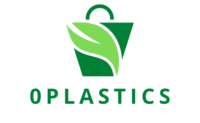Yes, the fashion industry is increasingly exploring biodegradable alternatives to traditional plastics in response to growing environmental concerns. These alternatives offer sustainable solutions that can help reduce the industry’s environmental footprint. Several biodegradable materials are being used in the fashion sector:
1. Biodegradable Textiles:
- Organic Cotton: Organic cotton is grown without synthetic pesticides or fertilizers, making it a biodegradable and environmentally friendly textile choice. It decomposes naturally without releasing harmful chemicals into the environment.
- Hemp: Hemp is a fast-growing and sustainable crop that requires minimal water and no pesticides. It can be used to create biodegradable textiles with similar properties to cotton.
- Lyocell and Modal: These cellulosic fibers are derived from sustainably sourced wood pulp, primarily from beech and eucalyptus trees. They are biodegradable and manufactured using eco-friendly processes.
- Piñatex: Piñatex is a sustainable and biodegradable textile made from pineapple leaf fibers. It is often used as an alternative to leather, offering a cruelty-free and environmentally friendly option.

2. Biodegradable Materials for Accessories:
- Mycelium Leather: Mycelium leather is a biodegradable material made from the root structure of mushrooms. It can be molded into various shapes and textures, providing a sustainable alternative to animal leather.
- Biodegradable Plastic Alternatives: Some fashion accessories, such as buttons, zippers, and packaging materials, are being produced using biodegradable materials like bioplastics, which decompose naturally without leaving harmful residues.
3. Sustainable Dyes and Finishes:
- Natural Dyes: Using natural dyes made from plants and minerals is a sustainable alternative to synthetic dyes, which often contain harmful chemicals. Natural dyes are biodegradable and have a lower environmental impact.
- Water-Based Finishes: Water-based finishes are being used as an alternative to solvent-based finishes in textile production. These finishes are biodegradable and minimize the release of harmful chemicals into the environment.
4. Circular Fashion Initiatives:
- Several initiatives in the fashion industry focus on promoting circular fashion, which emphasizes the use of biodegradable materials and encourages sustainable practices, such as clothing rental, repair services, and upcycling.
While biodegradable alternatives offer promising solutions for reducing the fashion industry’s reliance on traditional plastics, challenges remain in terms of scalability, cost-effectiveness, and consumer education. Overcoming these challenges requires collaborative efforts among designers, manufacturers, consumers, and policymakers to promote the adoption of biodegradable materials, support sustainable supply chains, and drive innovation in the fashion industry. As research and technology continue to advance, the integration of biodegradable materials into various fashion products is expected to increase, contributing to a more sustainable and environmentally conscious fashion sector.
